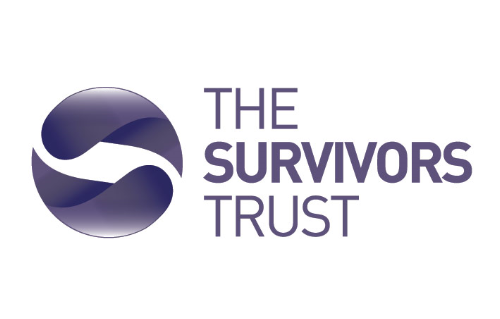Buttercup is the story of a young woman strong enough to finally make herself heard.
She is live streaming an informal spoken word gig to her online followers. As she takes the mic, she desperately hopes that her audience will include the one person who needs to hear her truth: her mother.
Weaving words, poems, and memories, she shares her story. From a vulnerable little girl in a bedroom in Kinshasa to a bold young woman partying and performing in Liverpool. Only now is she ready to revisit a past that she has locked away, to recognise the power behind her mother’s warnings, and to accept the truth that she was never to blame for what happened to her.
Written and performed by Dorcas Seb.
A co-production by 20 Stories High and Tigerlily Productions from an original idea by Associate Artist Odile Mukete.
Directed by Julia Samuels. Co-produced by Jenny Monks (Tigerlily Productions) and Leanne Jones (20 Stories High).


These tips are inspired by information made by The Survivor’s Trust. You can more of their support resources here.

Go at your own pace:
If you don’t want to watch this all at once, maybe consider watching the film a bit at a time. It’ll be available on iPlayer for a set amount of time. It’s a 45-minute-long film, so you could watch it 15 minutes at a time. Do what feels right for you.
Watch with someone:
Watching with someone who knows you and any connections you may have to the theme of this film may help when it comes to recognising if you need to switch it off, or if you need support. Or if you can’t watch with someone, maybe message someone ahead of watching, and let them know you might call them if you need support.
Read a summary of the film:
If you’d like to know the content before you watch, so that there’s nothing unexpected, you’ll find at the bottom of this document a full
breakdown of the piece.
Remember it’s your choice:
Remember it’s your choice to watch this film – you’re in the driving seat – there should never be any pressure to do so. You are in control, even if you might not feel it. If you’re feeling overwhelmed at any point, turn it off and try some grounding techniques.
Remember your breath:
If you become triggered, breathing is a great way to bring yourself back into a state of calm, lower your heart rate and create space in your brain to start thinking things through at an easier pace. Try breathing in for four seconds, holding your breath for four seconds, exhaling for four seconds and holding again. Repeat this for as long as you need until your breath feels in control again. Lots of mobiles & smart watches offer apps which can help you with this.
Get some fresh air:
Going for a walk or even just standing outdoors can help.
Get help:
If you notice that you’ve become overwhelmed and the techniques suggested here, and the ways you usually bring yourself back into a state of calm, then recognise that moment, and consider getting professional support. See the bottom of this document for helplines and organisations who can help.

Helplines: Sexual Abuse
The Survivor’s Trust
www.survivorstrust.org / 08088 010818
RASA (Merseyside only)
www.rasamerseyside.org / 0151 666 1392
Not from Merseyside?
Find your local support centre:
https://www.thesurvivorstrust.org/find-support
NAPAC (National Association for People Abused in
Childhood) Email support: support@napac.org.uk
Phone support: 0808 801 0331
Helplines: Report it
If you believe someone is at immediate danger, phone
the police: 999
Or call Childline (for under 18s): 0800 1111
Or non-emergency police (for over 18s): 101
Not sure where to turn?
The Mix offers a wide range of support for young
people under the age of 25.
www.themix.org.uk (for 1-2-1 chat and messenger) / 0808 808 4994
Useful Apps, Articles and Websites
Apps:
Hub of Hope
Woebot
Headspace
Calm
For Experiencing Flashbacks
NAPAC (National Association for People Abused
in Childhood) have created this article to help you
understand how to support yourself when you may be
recalling a traumatic incident that happened to you.
Understanding Flashbacks – what’s happening?
https://www.thesurvivorstrust.org/Handlers/Download.ashx?IDMF=3cbb806f-2e82-44df-8207-2ee8d8567948
My Little Book of Coping Methods
https://www.thesurvivorstrust.org/Handlers/Download.ashx?IDMF=e88ec2e3-3119-4722-8a88-f8421847d64b
Self-help guides: for you, as well as supporting
someone you care about
https://www.sarsas.org.uk/self-help-guides/
Guides to help with healing
https://www.thesurvivorstrust.org/understanding-healing
Six guides for Survivors:
help and tools to support survivors created by NAPAC
(National Association for People Abused in Childhood).
https://napac.org.uk/project_category/booklets/
Helping Survivors
An advocacy center whose mission is to assist anyone who has been victimized by sexual assault or abuse. Their website is a compilation of information around different instances of sexual violence. They offer resources to assist survivors and their families.
Helping Survivors – Sexual Assault and Harassment in the Workplace

Please see our full Buttercup Self Care toolkit for further support resources relating to the content in Buttercup.
Photos by Wes Rashid


